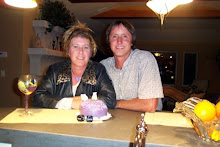Are you looking for writing jobs? Consider focusing on the Web. As businesses and publications continue to move online, there are plenty of jobs available for writers who know the Web.
Use your creativity in your job hunt: remember that the Web is unknown territory to most businesses. The more you know about how the Web works, the more you'll be able to charge for your services.
Let's look at five unique jobs for Web writers.
1. Article Marketing for Money: High Profits
Get familiar with article marketing. Once you know how this works, you can develop an entire business just on writing articles, and developing article marketing campaigns.
For most businesses, article marketing is a new promotional tool. Once you explain how cost-effective it is when compared to other forms of marketing however, you'll easily get clients.
2. Social Media Marketing: Business Blogging
Over the past couple of years, blogging has become mainstream, and businesses already know what a blog can do for them. However, they're not as aware of other social media marketing options. If you're experienced on social media sites like Facebook and know how to blog, you can sell these marketing services to businesses.
3. Daily Ezines for Businesses
Although many businesses collect contact information, most don't use it. If you can show potential clients the return on investment (ROI) of a daily ezine, they'll hire you in a heartbeat.
4. Affiliate Manager for Products
Few businesses with affiliate programs manage their affiliates efficiently. They may provide a few creative tools -- banners and advertisements -- but that's all.
As an affiliate manager, you have two main areas of responsibility: providing tools affiliates can use (articles, autoresponder sequences, advertising), and inspiring and motivating the affiliates.
5. Writing Mini Web Sites
If you can write small Web sites of five to ten pages, you can both sell them, and can create them to order.
Many writers are shy of creating sites. No one is asking you to be a Web designer however. Get a simple (free) HTML template, write the pages, buy a domain name and get the site online. From go to whoa, this should take you no longer than three hours. Profit? Around $100 a page, at a minimum.
Want to make money as a Web writer? Discover how easy it is with Angela Booth's "Sell Your Writing Online NOW" Training Program at http://sellwritingnow.com/Home/training.html
The program is fun and profitable too. There's a full year of lessons and assignments:"Sell Your Writing Online NOW" helps you to earn while you learn, even as a brand new writer.
For free weekly writing information, subscribe to Angela's Fab Freelance Writing Ezine at http://www.freelancewritingezine.com/ and receive "Write And Sell Your Writing: The Power-Write Report" immediately.
